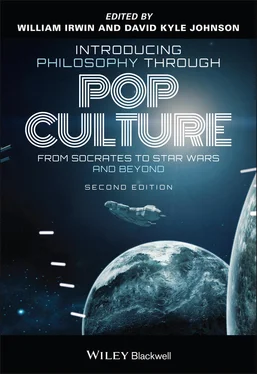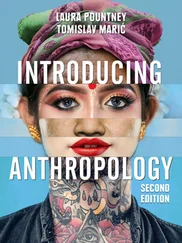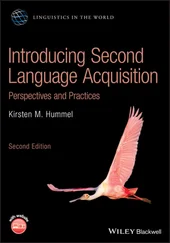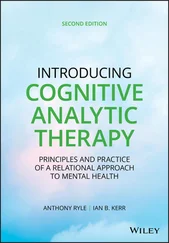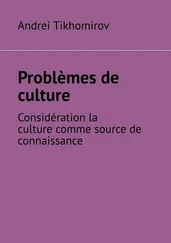When someone testifies to something completely outside of our own experiences, we should be skeptical. Hume claims that someone who has never seen water freeze because he's spent his entire life in a tropical climate should be slow to accept testimony that water freezes at a cold temperature. Adama's claim to know Earth's location is similar, since the Colonials have no personal experience of Earth. This claim has no continuity with their personal experiences, though it doesn't actually conflict with these experiences. Hume contends we should be even more skeptical when testimony is used to justify beliefs that contradict our everyday experiences.
The contemporary philosopher Alvin Plantinga claims that testimony plays a more foundational role in our beliefs than Hume, and his predecessor John Locke (1632–1704), acknowledge:
The Enlightenment looked askance at testimony and tradition; Locke saw them as a preeminent source of error. The Enlightenment idea is that perhaps we start by learning from others – our parents, for example. Properly mature and independent adults, however, will have passed beyond all that and believe what they do on the basis of the evidence. But this is a mistake; you can't know so much as your name or what city you live in without relying on testimony. (Will you produce your birth certificate for the first, or consult a handy map for the second? In each case you are of course relying on testimony.) 6
Plantinga identifies a number of important beliefs that can be justified based only upon testimony. No one knows their name, age, or location without using testimony to justify such beliefs. The Enlightenment ideal of the radically independent thinker who weighs all claims against evidence from their own individual experiences is unrealistic and artificial. While testimony is far from infallible, it plays a more important epistemic role than Locke and Hume allow.
In either case, testimony‐based justifications for believing in Earth need to be closely scrutinized. How trustworthy is the individual providing the testimony? How unlikely is their claim about Earth? Is the individual an appropriate authority concerning Earth? As the highest‐ranking military officer surviving the destruction of the Colonies and the author of their escape, Adama and his testimony seem naturally trustworthy. Starbuck certainly trusts Adama when she's confronted with the truth by Roslin:
STARBUCK:
The old man is our last chance to find Earth. He knows where it is. He said so. You were there. The location is a secret. But he is going to take us there.
ROSLIN:
Commander Adama has no idea where Earth is. He never did. He made it up in order to give people hope.
STARBUCK:
You're lying.
ROSLIN:
Go ask him.
(“Kobol's Last Gleaming, Part 1”)
When Starbuck does ask him, Adama tries to avoid her questions, but she's forced to conclude that Adama's patriotism and proficiency in fulfilling military duties don't make him an expert concerning Earth. As commander of a soon to be retired battlestar, Adama simply doesn't have access to Earth's location. The Gettier problem demonstrates that the Colonials' beliefs about Earth fall short of knowledge, and reliabilism suggests there's reason to doubt whether beliefs based on Adama's testimony are even justified.
“You Have to Have Something to Live for. Let it be Earth”
How should beliefs be chosen in an uncertain world? W.K. Clifford (1845–1879) says it's unethical to believe anything without sufficient evidence. This view, known as evidentialism , claims that if there isn't enough evidence to support a belief, one mustn't consent to its truth. One premise supporting evidentialism is that incorrect beliefs can have a damaging effect on society:
And no one man's belief is in any case a private matter which concerns himself alone. Our lives are guided by that general conception of the course of things which has been created by society for social purposes. Our words, our phrases, our forms and processes and modes of thought, are common property, fashioned and perfected from age to age; an heirloom which every succeeding generation inherits as a precious deposit and a sacred trust to be handed on to the next one, not unchanged but enlarged and purified, with some clear marks of its proper handiwork. 7
It's not merely mistaken, imprudent, or foolish to believe something without adequate evidence, it's outright immoral , a violation of our ethical duties to one another. If Roslin believes it's the will of the gods to lead the Colonials to Earth without sufficient evidence, this belief could have damaging effects on the entire fleet. Even if a less influential person like Starbuck believes in Earth without enough evidence, her beliefs don't only affect herself, but others as well who may be inclined to agree with her. Clifford offers this sweeping conclusion, “To sum it up: it is wrong always, everywhere, and for anyone, to believe anything upon insufficient evidence.” 8
Clifford, however, doesn't recognize that in some situations knowledge is elusive and reliable justification uncertain; yet, believing nothing is a deeply damaging option. William James (1842–1910) claims that when definitive knowledge is impossible on a momentous and forced issue, it's reasonable to choose beliefs based on their practical consequences. He considers marriage and religious faith as two such decisions. In both cases a choice must be made in less than certain circumstances. Yet, these choices are forced: to withhold belief is effectively a choice against it, and necessarily results in the loss of potential desirable consequences. Marriage and faith are also momentous in their potential for positive results:
It is as if a man should hesitate indefinitely to ask a certain woman to marry him because he was not perfectly sure that she would prove an angel after he brought her home. Would he not cut himself off from that particular angel‐possibility as decisively as if he went and married some one else? 9
If there are desirable results from a specific committed relationship, they're inevitably lost if the relationship isn't embraced. It may be impossible for Apollo to know whether Anastasia Dualla would be a good wife; but the benefits offered by a committed relationship with her can't be gained without commitment. The choice can't be avoided, for avoiding it is an effective choice against the relationship. Lifelong bachelorhood isn't irrational or unjustifiable; but it's guaranteed to prevent Apollo from the benefits unique to a committed relationship with Dualla.
Or consider Apollo's unwillingness to see the conflict brewing between the fleet's military and civilian leadership. When his father chastises him for “siding” with Roslin, Apollo retorts, “I didn't know we were picking sides.” Adama muses, “That's why you haven't picked one yet.” Later, Apollo does choose his side – that of democracy (“Bastille Day”; “Kobol's Last Gleaming, Part 2”). Due to Apollo's important position in the fleet and his personal relationships with both Adama and Roslin, it's inevitable that he's forced to choose between the military and civilian factions. When given orders to arrest Roslin, he has no choice but to choose a side. His choice was also momentous. By siding with Roslin, he stands up for democracy at the cost of his own freedom.
William James views religious faith as a similarly momentous decision. He claims no argument proves the truthfulness of religious faith with certainty. Even so, at some point a decision must be made. The choice is forced. To put off the choice indefinitely is effectively to reject religion. Furthermore, the question of religion is momentously important. Many religious thinkers claim it offers a life filled with greater meaning and purpose, along with eternal happiness after death. Agnosticism cuts one off from any good attainable by embracing religion. Gaining the benefits of religious faith, for this life or the afterlife, may require a choice here and now. 10 An agnostic has no chance for the benefits of religion, just as the lifelong bachelor has no chance for the goods of marriage. 11 Similarly, the agnostic cuts himself off from any advantages from atheism. If religion is false and all genuine goods are located in the here and now, then withholding consent from atheism is also a damaging choice. It's wiser to embrace atheism rather than agnosticism, since it frees one to pursue the goods of life wholeheartedly.
Читать дальше
